Down But Not Out - How the UK Hotel Sector is Adapting to Survive
How is the sector adapting to adversity and what strategies are hotels putting in place to support their recovery?
21 minutes to read
The ongoing and tightening of social distancing restrictions throughout the UK are proving to be particularly challenging for the hotel sector, with tier-3 restrictions in England even more extreme than compared to the constraints of the second lockdown. But despite further forced hotel closures or operating under conditions which are severely impacting trading, the pandemic is providing the impetus for the sector to reset and the opportunity to recover and move forward on a stronger footing.
Following interviews with leading hotel brands, operators and hotel owners, Knight Frank identifies the following Focus Points as critical to a successful route out of the pandemic.
- Learning from the challenges of lockdown
- Pandemic Crisis Management – restructuring and multi-skilling
- Global Hotel Brands – at a time of crisis, testing the value of a partnership
- Acceleration in Digitalisation – aligning guest expectations
- Premium Specialist Niche Operators – the value of product and space
- Driving Staycation Demand – the pathway to recovery
- Government and Lending Support to the Industry – critical to survival
- Hotel Supply – a natural rebalance
Our Key Findings:
Factors such as a hotel’s location, its size, market positioning and the agility of the management and senior leadership team in terms of their ability to react quickly and respond to the turmoil of the pandemic, are all factors which have contributed to the resilience in performance on both an individual asset level and at a corporate level.
Our research reveals that a robust rebound of the staycation market following the initial lockdown, has enabled hotels under competent management, located in rural or coastal settings and benefiting from nature and space, to operate at a profit comparable or greater than achieved in 2019.
Acceleration in digitalisation within the sector; improved standards and strict protocols towards hygiene, safety and cleanliness; a heightened focus on guest expectations and a flight to quality; improved operating margins; and the disappearance of weaker brands, over geared and under invested assets are all factors which will have an impact on the recovery and the long-term growth of the sector.
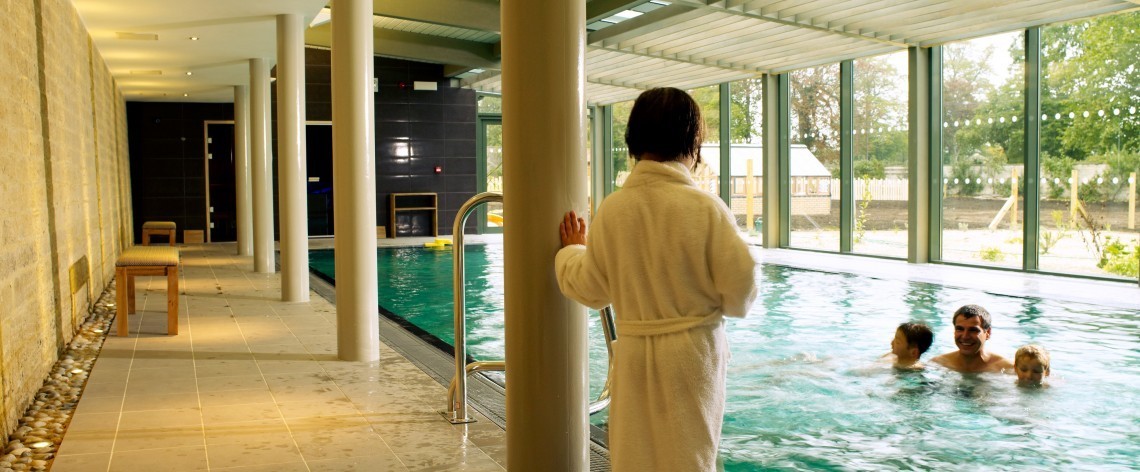
Image: Woolley Grange Hotel, Luxury Family Hotels
Learning from the Challenges of Lockdown
The sudden impact of COVID-19 brought with it overwhelming challenges, including the security and maintenance of a closed property; an unchartered, opaque operating environment, with trading performance vastly altered, forecasting and revenue management almost impossible; as well as the complexity of implementing and adapting to new Covid-secure operating procedures and practices.
For those hotels which were able to stay open during the initial lockdown, providing accommodation for Key Workers, hotel occupancies typically ranged between 20%-30%. With analysis showing that for a hotel to breakeven an occupancy of 15% to 25% is required - in conjunction with use of the furlough scheme - remaining open was worthwhile for many hotels. Moreover, according to these operators, staying open enabled them to gain a head start over their competitors when the first lockdown ended, having had the experience of how to adjust to the new operating requirements and an understanding of where staffing and cost savings could be made.
As such, operating on a skeleton level of staffing, enabled a resilient workforce to adapt to a new way of working. A re-invigorated and energised salesforce focused on building a base level of occupancy, but also importantly succeeded in building a greater level of forward bookings for once the lockdown ended. This enabled a trading hotel to reach a higher level of occupancy much quicker than its competitors which had remained closed.
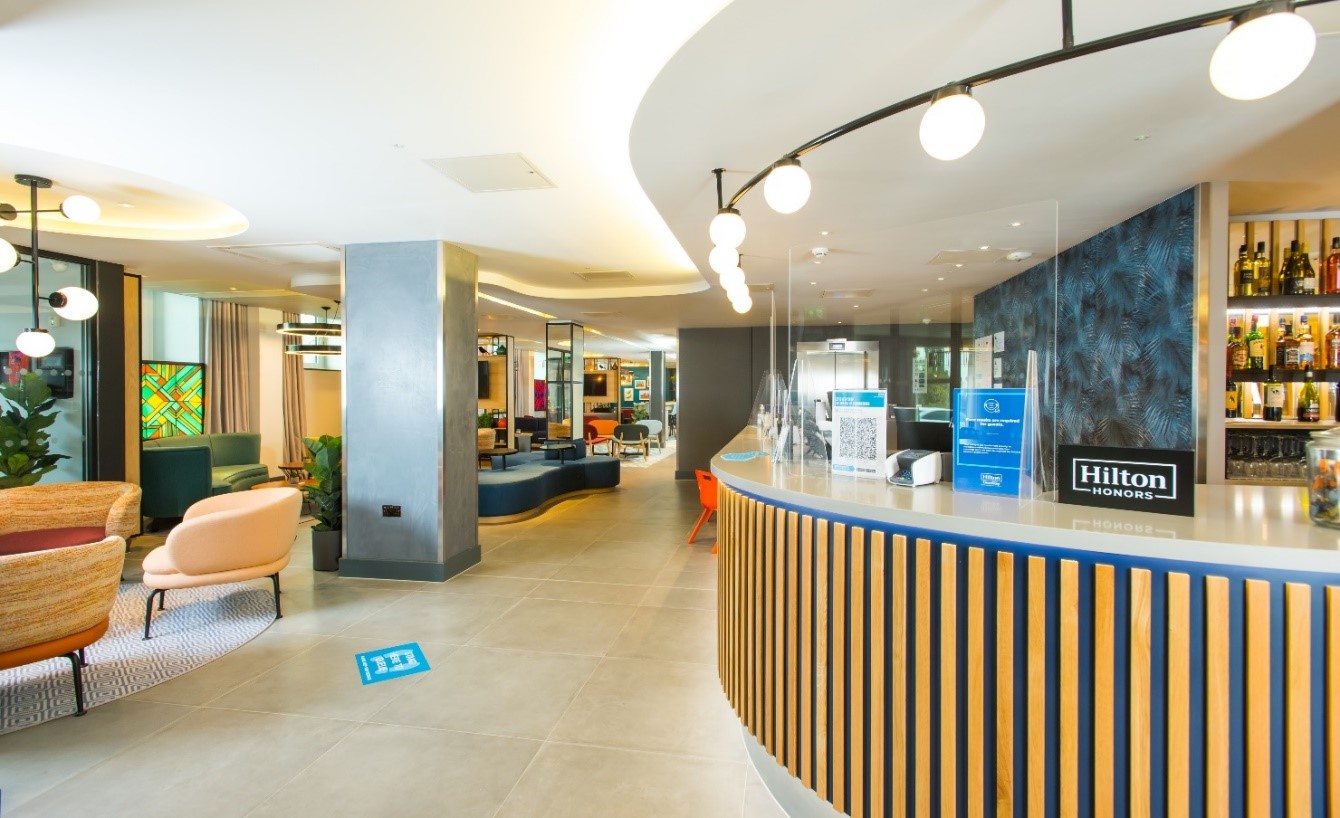
Image: Hampton by Hilton London Park Royal, Opened September 2020. Owned and operated by Starboard Hotels
"At Starboard Hotels, we privately own and operate 21 economy and midscale limited service hotels, partnering with world renowned brands. As a family owned business, we are acutely aware of the operational challenges and day-to-day running of the business. The sudden volatile trading conditions at the onset of the pandemic, resulted in a complete examination of our costs, the outcome of which has made us leaner, more efficient and we have produced a business model that will be profitable at lower income levels. Critical to our survival has been the multi-skilling of our staff and simplifying our operations, reducing the staffing level to support a lower base of business and through use of the flexible furlough scheme will help us through the pandemic. The commitment and success of our commercial teams and management strategies to drive the business forward, will be our route out of Covid-19, embracing the recovery on a much stronger and more secure footing."
Paul Callingham, Chairman, Starboard Hotels
With the benefit of hindsight and results of published performance data, the decision on whether to close or stay open during the second lockdown was driven not only by the operating costs of remaining open versus those of closing, but also the impact on future revenue generation of being closed. For many of those hotels which remain open, trading performance in the weeks that follow exceeds that of those competitor hotels which opted to close.
These valuable lessons learnt are most certainly guiding owners how best to weather any subsequent lockdowns or toughened restrictions, where they are permitted to remain open. In England, during the second lockdown, a much higher proportion of hotels thus opted to remain open, albeit permitted to do so for corporate guests only. Yet with restrictions toughening and large areas of the country now falling within the highest tiers of restrictions, some 25% of UK hotel supply will be forced to close.
Pandemic Crisis Management - Restructuring & Multi-Skilling
With total payroll costs in Regional UK averaging between 21% of total revenue for select-service hotels, 32% of total revenue in full-service upscale and upper-upscale hotels and up to 50% for hotels which operate in labour intensive niches, redundancies and reduced hours of full-time employment contracts have been a necessity, to substantially reduce the level of variable and fixed costs.
Without the support of the government’s job retention scheme, a hotel operating at such a low base of occupancy, simply does not make a viable business. The furlough scheme has and continues to be the greatest lifeline for the industry, protecting employee livelihoods, and, without which so many hotels would not have survived.
Headcounts have been reduced to support a much lower base of occupancy and further flexed downwards with the use of the furlough scheme, allowing employers to bring back personnel as occupancy recovers and to manage the peaks and troughs of demand on a day-to-day basis. Certain operators are also increasingly re-employing staff on zero-hour contracts in order to flex staff hours according to the needs of the business.
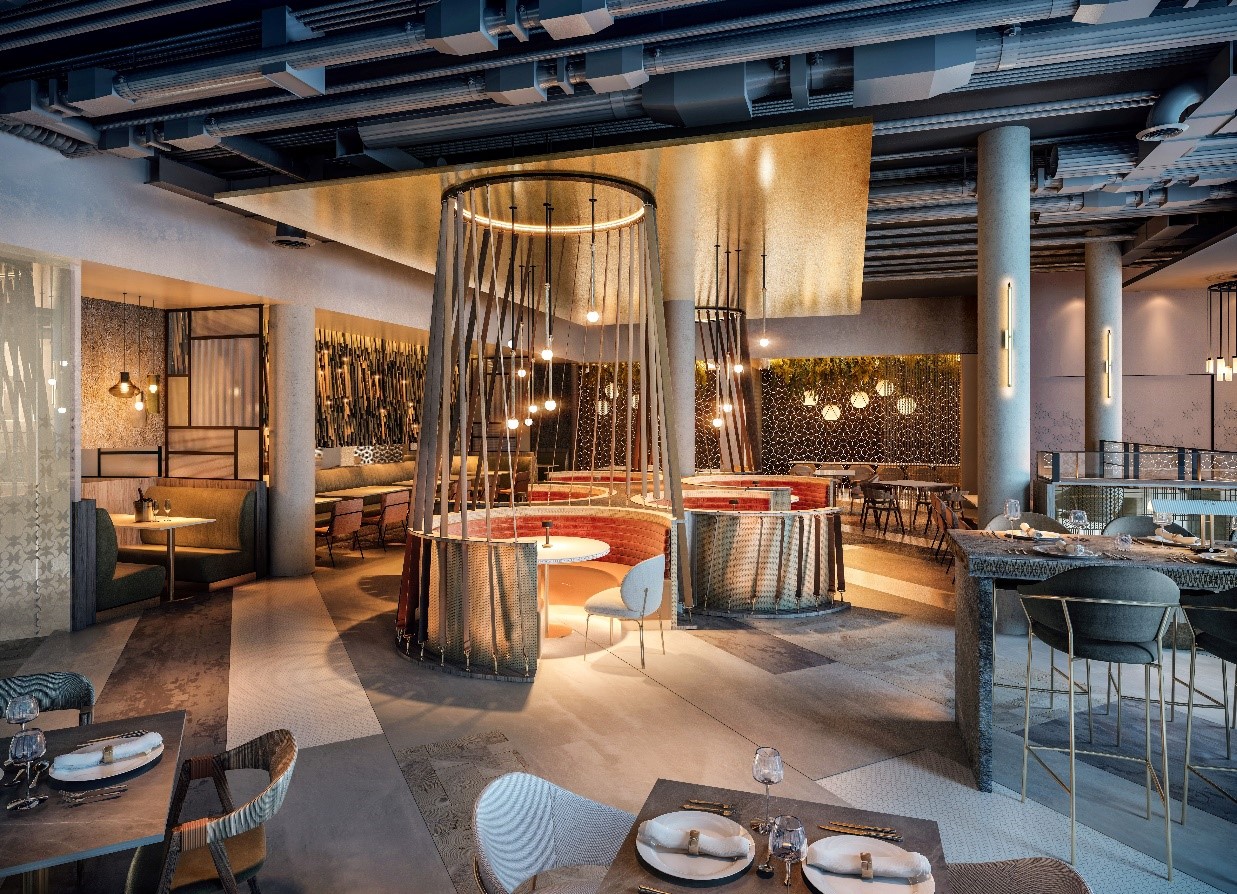
Image: Novotel Leicester, Opened January 2020, dual-branded property with Aparthotel Adagio.
Restructuring of personnel and changing the way in which hotels operate is likely to have far reaching impact on the sector across all hotel classes. Despite all the efficiencies put in place, the one area of continued investment is in the continued training, mentoring, and multi-skilling of staff, with employees in all departments embracing the cultural shift to work across multiple departments.
Through multi-skilling and by simplifying operations, many efficient operators have hotels staffed at an appropriate level through to the end of 2021. Employing and retaining staff with the right aptitude, flexibility and mind-set to multi-skill, is therefore essential. The commitment of the hotel staff during the pandemic and their ongoing contribution towards a hotel’s performance during its recovery, highlights just how valuable an asset hospitality staff are to the success of an establishment.
Global Hotel Brands – At a time of Crisis, Testing the Value of a Partnership
Global hotel brands, through their exacting brand standards, are often regarded as hospitality leaders in terms of their reputation for high standards of hotel cleanliness.
With the pandemic changing customer behaviours and expectations, regaining the trust of previously loyal guests and driving new customers is of critical importance to the brands. As such, global hotel brands have led the way in terms of new best practice for the industry, rolling out strict new protocols for hygiene, cleanliness and safety, with audited and certified standards and procedures, to ensure the well-being and safeguard the health of both staff and guests.
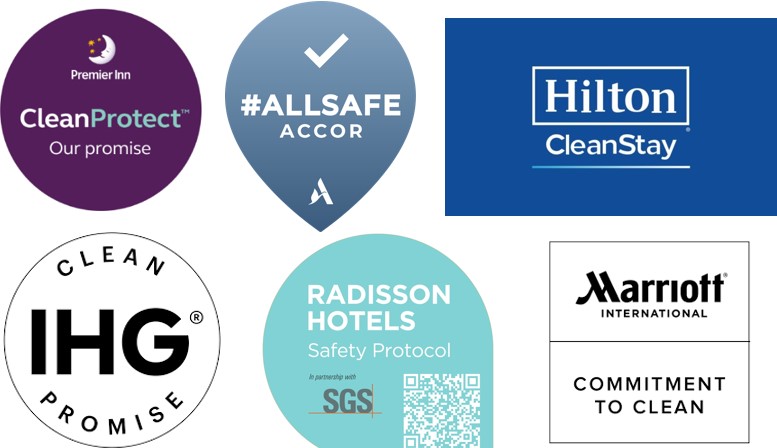
Despite being asset-light, global hotel brands have endured challenging times during the pandemic, given that the majority of their royalty, programme and management fees are based upon a percentage of rooms and non-rooms revenue. However, there is no better test of a partnership than during a period of economic downturn and demand shock, for a global brand to demonstrate how flexible and responsive they are to the needs of an owner.
New strategies have been devised in an effort to show greater flexibility and support to hotel owners. New Covid enforced protocols, have resulted in global brands undertaking a vetting process of brand standards, in order to relax and waiver certain standards relating to service and customer experience. Other means of support have included the postponement of franchise or management fees due and the relaxation of Performance Improvement Plans (PIPs), as well as allowing for the capital funds to be redeployed elsewhere.

Hampton Inn, Bristol City Centre (Under third-party management by Focus Hotels)
"At Hilton we have built a reputation of innovation, integrity, and excellence with both our guests and our owners. Above all the challenges the pandemic presents, it highlights Hilton’s enduring strengths: our flexible and valued partnerships and responsiveness when faced with adversity. This year has presented unique challenges, but we know there is pent-up demand for travel and we are committed to delivering our customers evolving needs, and accelerating our innovations. Through our investment in technology, the diversity of our leading brands, our advanced distribution systems, as well as our Hilton Honors loyalty program, we strive to work harder and smarter. We remain acutely focused on delivering safety, hygiene, personalised hospitality experiences and we are committed to future proofing our hotels to optimise investment return for our owners."
Graham Dodd, Managing Director, Development - UK & Ireland at Hilton
As the industry looks ahead to recovery, hotel brands will have to work even harder and smarter to ensure brand value. With hotel owners seeking to drive operating efficiencies, reducing commissions payable to the third-party OTAs has become critical. Hotel brands will need to ensure that the engine rooms of their distribution and loyalty programs produce an even greater level of new and repeat business, in particular targeted at the domestic market in the short-term, whilst also applying pressure to the OTAs to address the balance of fees payable.
One example of further creativity and flexibility towards the need of hotels owners, is the launch of the “Radisson Individuals” brand, which Radisson have aimed at established independent hotel owners, who seek to drive additional revenue through the affiliation of an international flag. The flexible model allows for short-term franchise agreements of three to five years, with significantly discounted fees and no upfront Performance Improvement Plan required, aimed at targeting properties in more rural or destination-led locations.
Whilst the global hotel brands have had little option but to be flexible and to support their hotel owners during the crisis, once the sector begins its recovery, the brand standards are likely to be imposed with renewed vigour. Ongoing investment in an asset is deemed critical to ensure standards and brand compliance are achieved. Whilst any responsible owner will be committed to investing in the asset, obtaining funds from lenders for any major capex project may well prove more challenging, at least in the short-term. Nevertheless, the well maintained hotels are those likely to perform best during periods of low demand, especially with the heightened expectations of guests in terms of hygiene, cleanliness and safety.
Acceleration Digitalisation – Aligning Guest Expectations
For the global brands, investment in digital technology to seek competitive advantage is not a new phenomenon. Technology has for many years been used to analyse guest data, from which to glean insight into changing consumer preferences. As a result, major hospitality firms have over time built up their digital platforms and altered their operating models to cater to the needs of their guests, in particular for corporate guests.
Covid-19 has changed guest behaviour with a strong preference for less human interaction. Branded hotels owners, who are most likely to have already invested in technology, have been able to able to quickly adapt and with purpose-built applications can simplify, personalise and integrate across their portfolios procedures such as contactless check-in /check-out, keyless entry, the use of QR codes and the provision of digital menus and ordering, and requesting additional bedroom amenities. The pandemic has provided the catalyst to accelerate the trend towards much greater digitalisation, leading to many independent hotels and other privately-owned hotel companies also embracing the change.
Continued advancement of technology and digitalisation is expected to continue long after the health pandemic subsides. Digitalisation is likely to see operating efficiencies, enabling mobile working and simplifying many procedures, which can ultimately lead to lower staffing requirements as well as eliminating human error, increasing service efficiency and ultimately improve hotel performance and profitability.

Image: Holiday Inn Birmingham North – Cannock (Owned and Operated by Nine Hotel Group, under franchise with IHG)
Premium Specialist Niche Operators – The Benefits of Product and Space
Long before Covid-19 struck, the strength of the UK domestic staycation market had been well known, with lifestyle brands borne to meet and adapt to the changing demands of the modern traveller. The value of experiences, supporting local communities, seeking uniqueness and authenticity, sophistication and personalisation, sustainable practices, wellness and work/life balance are some of the drivers for premium leisure stays.
Operating outside of regional UK’s city centres, exist a number of experienced, niche operators, with a bespoke, well-invested, quality product and service offering. Such operators historically benefit from a mixed demand base and, in particular, from growing demand for experience and destination-led business. Despite huge financial uncertainty, with the loss of the majority of weddings, all large scale MICE business and much of their corporate demand, as well as a higher tendency to close during a lockdown, these operators have shown strong resilience, using their location outside of city centres, and their abundance of space to offer Covid-secure experiences.
With the closure of international travel corridors, these premium niche operators have witnessed a surge in demand for destination-led staycations, benefitting from longer-staying, high spending guests who would normally holiday abroad. Many of these hotels have achieved higher monthly average room rates since the end of the first lockdown, being a combination of higher levels of demand together with the benefit of the lower VAT rate. These factors, combined with a lower proportion of room nights sold via OTAs - due to the strength of demand generating more direct bookings - has enabled many hotels to hold onto, and in some cases, improve their rooms departmental operating profit margin. Moreover, with much of this demand being multiple night, leisure-led stays, housekeeping has not always been desired by guests on a daily basis as in the past and whilst the cost per room cleaned has increased, if the guest does not opt for this, it has helped hoteliers with their operating margin.
The operational challenge of a much higher leisure-based business mix has resulted in significantly higher ratio of guests per bedroom (bed occupancy) than compared to corporate stays. Changed guests’ behaviours – with a strong bias towards appreciation of a hotel’s space and its facilities, both internal and external - has led to a much higher capture of resident food and beverage take-up. In some cases, hotels have experienced a higher spend per cover, compensating somewhat for the decline in non-resident food & beverage sales.
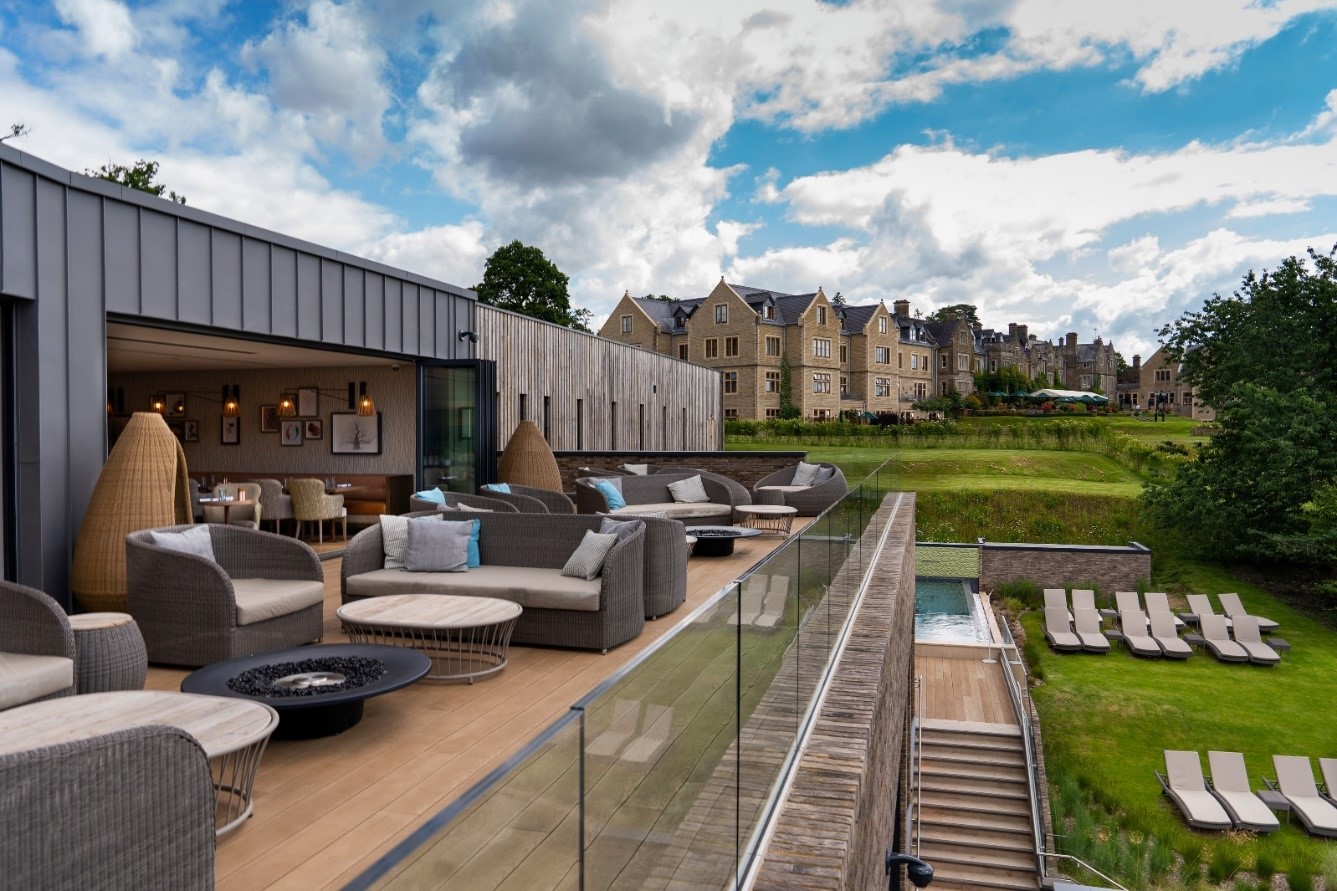
Image: The Spa at South Lodge, West Sussex. (The Exclusive Collection of Hotels)
Where premium, smaller MICE business exists, these operators have captured the corporate demand willing to trade up for the right value proposition, in terms of space, safety and value for money. Other lucrative contracts have stemmed from elite sport where, on occasions whole premises have been hired out for squads and their support teams to form their own bio-secure bubbles. Elite sports have been a particularly profitable source of business particularly during the lockdowns, where hotels were otherwise closed to the general public.
There is no question that premium niche operators have endured challenging times, but taking full advantage of their location and under strong management, many have succeeded through not only their ability to adapt but also because they have maintained their hotels to a high standard, placing them in a stronger position to capture what demand is available. In certain cases, some hotels have achieved a significantly enhanced performance on a monthly basis during August and early autumn, with improved profitability than compared to their respective months of 2019 and in exceptional circumstances the seasonal profit having exceeded trading performance for the whole of the previous year.
"At the Exclusive Collection, we offer a unique collection of luxury hotels, spas, golf and a cookery school. As an independent, family-owned business, everything we do is highly guest centric, focused on providing amazing venues and Covid-safe experiences for our guests to enjoy, relax, socialise, meet and be happy. The pandemic has led to a change in people’s behaviours and to that effect, we have capitalised on our countryside locations, whilst utilising our ample space to provide the physical distancing required. We have witnessed a surge in the domestic premium leisure market and we have further excelled in capturing small, high-end private meetings. Having closed our hotels through both lockdowns, operating efficiencies have been made, such as reducing payroll costs and driving business through direct channels. With the government support available, we have remained a viable business. With news of a vaccine, the outlook from Q2-2021 is positive, with certain growth in the domestic, experience-led premium leisure market and we remain optimistic that wedding receptions postponed from 2020, will resume from the spring."
Danny Pecorelli, Managing Director, Exclusive Collection
Driving Staycation demand - The Pathway to Recovery
Staycation demand in the UK hotel market is likely to remain substantially above the historical long-term levels throughout 2021, with the summer months potentially generating higher performance than in 2020. Whilst the roll-out of a global vaccine during 2021 should hopefully result in social distancing measures gradually being eased, the recovery of corporate demand and ultimately MICE demand will take some time to gain momentum.
Hotel operators are reporting healthy forward bookings for the spring and summer months of 2021, boosting customer confidence by providing flexible booking options. As the recovery evolves, achieving the correct balance of experience and hospitality versus sanitisation and hospitalisation will become increasing important, as hotels seek to ensure that a high level of customer satisfaction and retention is achieved.

Visiting friends and families will become a priority once vulnerable groups are immunised; postponed weddings remain on the books; strong pent-up leisure demand is expected from transient guests who have shielded throughout the pandemic; and demand is set to remain strong for experiential and destination-led leisure, with spa and golf resorts likely to outperform other hotel classes. As social restrictions are further eased, this will allow for cultural and sporting events to return, leading to a revival of regional UK short-stay city breaks.
Domestic corporate and MICE demand is likely to be tempered in the short-term, albeit, corporate clients are likely to trade up and potentially seek smaller more private venues, as demand for less populated locations and more space will be sought after, while the requirement for safety continues to be prioritised. As the recovery evolves, confidence to travel and the desire to meet clients and colleagues will resume.
For London and other key gateway cities dependent upon international visitors, a much slower recovery is expected. European travel is expected to lead the recovery, albeit with shorter lengths of stays than long-haul travellers.
Government and Lending Support to the Industry – Critical to Survival
Further lobbying by industry bodies is imperative to ensure immediate additional financial support packages. As a priority, extending business rates relief and the current discounted VAT at 5% for the financial year 2021/2022 is imperative. Equally, additional support in the form of grants and extending the job retention scheme beyond March 2021 is vital to enable hotels to retain their most valuable assets – its people. With this level of ongoing support, the prospect of survival for many hotels would increase significantly.
There is also concern that the government plans to abolish the VAT Retail Export Scheme, meaning an end to VAT-free shopping for international visitors when the UK’s Brexit transition period ends at the end of the year. With the hotel markets in key gateway cities reliant on international visitors, this brings an additional significant threat to the industry, as the UK would become the only European country not to offer VAT-free shopping for international visitors.
During the period leading up to the pandemic, appetite from lenders to fund hotel acquisitions, developments and refinance projects had been strong. During these unprecedented times, this is one such relationship which has been supremely tested, given the demands to fund key working capital requirements and certain breaching of financial covenants in loan agreements and defaults under other financial arrangements.
Support in the form of accessing the various government business loans, through to covenant waivers, capital holiday repayments and extensions to revolving credit facilities and overdrafts have all been made available by lenders to varying degrees. Restructuring of loan facilities is the current focus, often with demands for increased equity.
Whilst the sector will require ongoing support during the recovery, lenders will increasingly seek to reduce their risk exposure. Meeting the demands of lenders will become a priority, including the need to pay back the Coronavirus business interruption loans. In time, there will almost certainly be increased opportunities for those cash-rich investors seeking out investments, which under normal trading conditions would not have become available.
How a sub-sector and an individual borrower has performed during the pandemic and through its recovery will be increasingly scrutinised, with the use of data to support future lending decisions being used to a much greater extent and the analysis undertaken at a more granular and detailed level than ever before.
Hotel Supply – A Natural Rebalance
Prior to the outbreak of the pandemic, one of the greatest threats to the UK hotel market was new and over supply of hotels in certain key UK markets, with a pipeline of some 23,000 rooms under construction and due to open in 2020. In reality, the majority of these hotel projects have been delayed until 2021, with fewer than 7,000 new rooms opening in 2020. It is highly likely that a significant proportion of hotel projects with approved planning permission, will now be aborted.
In the short-term, hotel occupancies will be depressed due to the pressures of supply versus demand during the recovery. The supply fundamentals in the long-term, however, look strong following a natural rebalance of supply, with a reduced pipeline of new hotel supply, combined with the likely disappearance of under-invested existing supply repurposing to alternative use.
Conclusions and Future Outlook
The demand shock of Covid-19 resulting in a significantly lower base of business; the complexities involved in managing lockdowns and operating under extremely restrictive conditions; and the implementation of new procedures and detailed protocols to operate in a Covid-secure and safe way, have all contributed to the tremendous financial pressures exerted on hotel owners.
The pathway out of this pandemic continues to remain both unpredictable and uncertain. The hospitality sector is unequivocally disadvantaged by the social distancing restrictions in place and the longer it takes to control the spread of the virus, the greater the potential distress. The need for continued, extensive financial government stimulus which is relevant to support the sector through recovery is now critical. In particular business rates need to be fair and an extension to the flexible furlough scheme, given the rise in the National Living Wage in April 2021, are both a necessity.
The rollout of a global vaccine, combined with large-scale testing will be the catalyst for the revival of corporate confidence to travel and for the international traveller to return. Whilst the opening up of travel corridors and the introduction of digital health passes will lead to a resurgence in international travel, capacity of the airlines will take time and may impede the recovery of the sector to begin with. As such, domestic demand for staycation is expected to remain strong, with a renewed focus on lifestyle and experiential travel. Already we are witnessing renewed vigour in this direction, with Accor in exclusive negotiations with Ennismore Capital to become the leading and fastest growing global operator of 12 renowned lifestyle brands.
A certain level of distress is inevitable in the market place, with the disappearance of weaker brands, poorly managed, and under-invested hotels, as well as the increased likelihood of lenders calling time on non-performing loans. Covid-19 will be a pivotal time for the sector, to reset, rebalance and rejuvenate, with rich opportunities for those most agile, and investors with access to private capital.
Knight Frank would like to thank all of our contributors for their generous time and support.